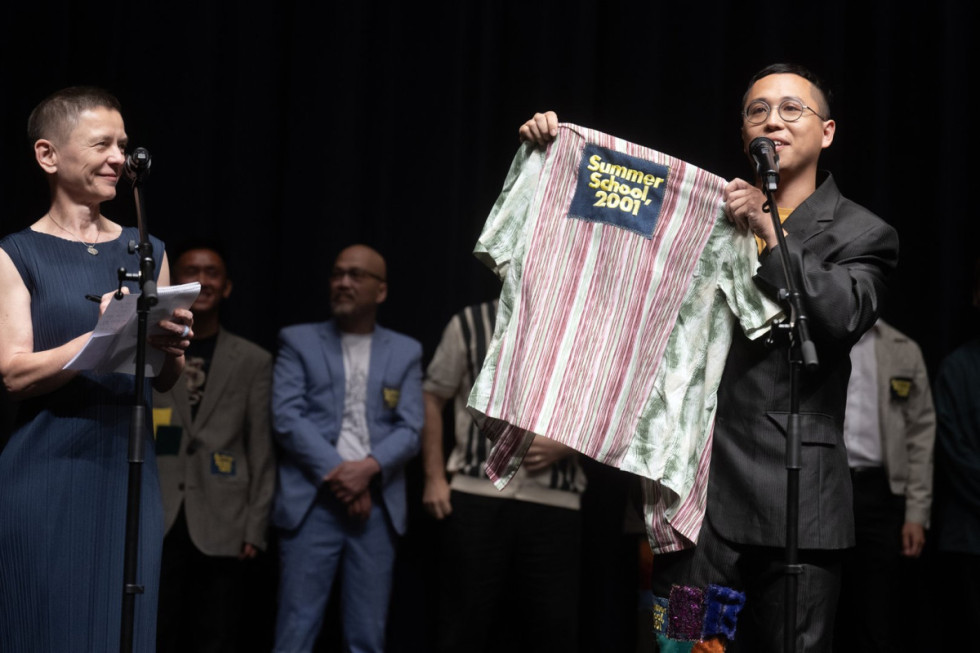
July 09, 2025, 19:20

The first Czech Vietnamese feature-length film, Summer School, 2001, had its world premiere in the Special Screenings section at KVIFF. Directed by Dužan Duong, the debut feature returns to the early 2000s, when a 17-year-old boy returns, after ten years in Vietnam, to his family at a market in Cheb.
“The story is based on my life, but it’s autofiction. Some parts are true, others we made up. It’s a shared experience of the community written into the film,” the director explained during a post-screening discussion. Producer Lukáš Kokeš added that about 80% of the story comes from real-life experiences.
Audience members not only expressed gratitude for the film but also engaged in a lively discussion, for example, about the practice of sending children to Vietnam without their parents, a reality many of the crew members had personally lived through. “Our generation already believes in psyche and emotional intelligence, but our parents don’t know these concepts,” one of the actors noted.
Finding the right cast proved challenging. “There are no professional Vietnamese actors in the Czech Republic, even though there are a lot of Vietnamese people here,” said Duong, and Kokeš added that thanks to the film’s production, the first Vietnamese casting agency was established in the Czech Republic.
The discussion also touched on the issue of substance use within the Vietnamese community. “My director of photography noticed that in Vietnam, if you don’t get high, you don’t really function. Otherwise, you wouldn’t survive the heat and fifteen-hour workdays. But really, our whole civilization is high on something – that’s what unites us,” Duong thinks. He also revealed what is being poured from the demijohn in the film. “When I was little, my dad would bring in a snake or a seahorse, mix it with herbs, and pour vodka over it—and the vodka would go up in price.”
Summer School, 2001 received a warm response at KVIFF, including from the director’s own family. “Mom teared up, dad shook my hand, so it was a success,” Duong said with a smile. As for whether the film will be shown in Vietnam, that remains uncertain. “We’d love that, the market there is ten times bigger than here,” Duong noted. “But Vietnam is still a socialist country where everything is subject to central control, so the film would first have to pass through state censorship,” Kokeš indicated possible complications.
First-hand brews throughout the year.
Be among the first to learn about upcoming events and other news. We only send the newsletter when we have something to say.